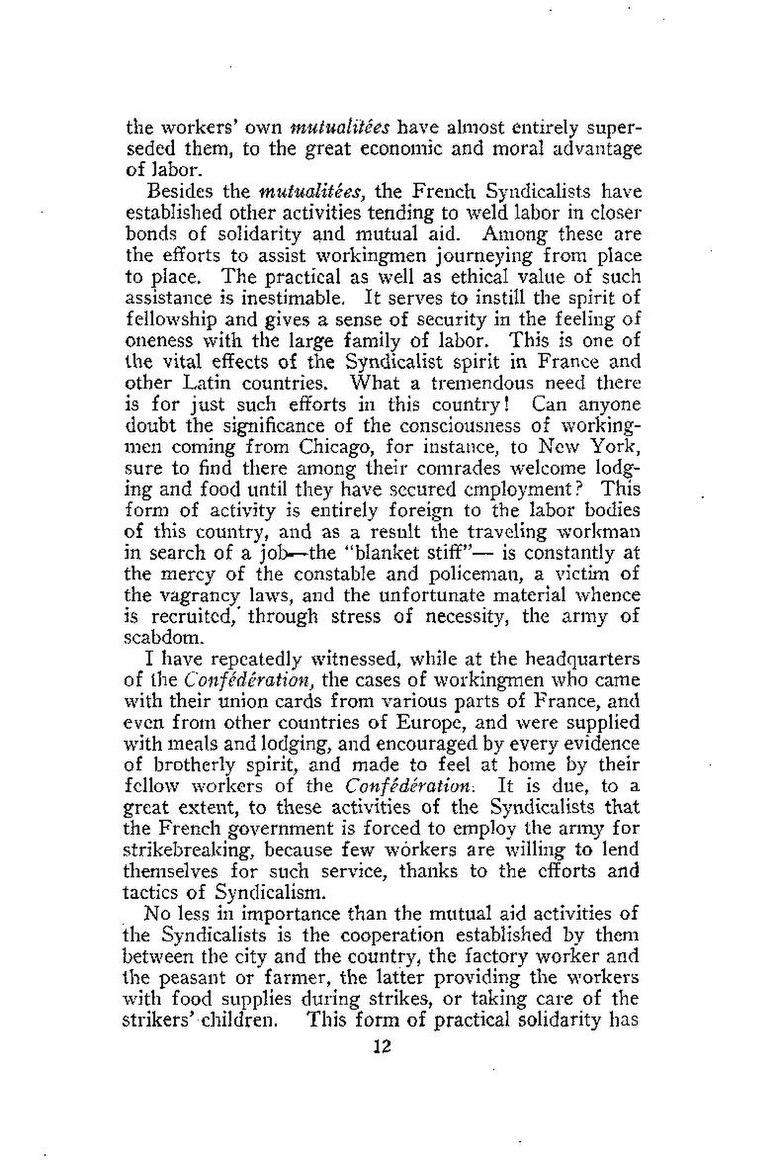the workers' own mutualitées have almost entirely superseded them, to the great economic and moral advantage of labor.
Besides the mutualitées, the French Syndicalists have established other activities tending to weld labor in closer bonds of solidarity and mutual aid. Among these are the efforts to assist workingmen journeying from place to place. The practical as well as ethical value of such assistance is inestimable. It serves to instill the spirit of fellowship and gives a sense of security in the feeling of oneness with the large family of labor. This is one of the vital effects of the Syndicalist spirit in France and other Latin countries. What a tremendous need there is for just such efforts in this country! Can anyone doubt the significance of the consciousness of workingmen coming from Chicago, for instance, to New York, sure to find there among their comrades welcome lodging and food until they have secured employment? This form of activity is entirely foreign to the labor bodies of this country, and as a result the traveling workman in search of a job—the "blanket stiff"—is constantly at the mercy of the constable and policeman, a victim of the vagrancy laws, and the unfortunate material whence is recruited, through stress of necessity, the army of scabdom.
I have repeatedly witnessed, while at the headquarters of the Confédération, the cases of workingmen who came with their union cards from various parts of France, and even from other countries of Europe, and were supplied with meals and lodging, and encouraged by every evidence of brotherly spirit, and made to feel at home by their fellow workers of the Confédération. It is due, to a great extent, to these activities of the Syndicalists that the French government is forced to employ the army for strikebreaking, because few workers are willing to lend themselves for such service, thanks to the efforts and tactics of Syndicalism.
No less in importance than the mutual aid activities of the Syndicalists is the cooperation established by them between the city and the country, the factory worker and the peasant or farmer, the latter providing the workers with food supplies during strikes, or taking care of the strikers' children. This form of practical solidarity has
12
